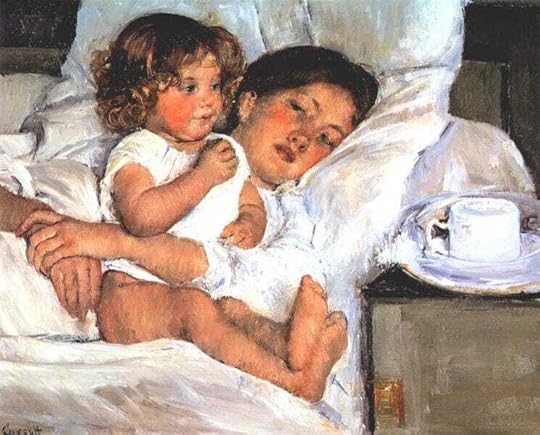The writer as mother: confronting Alice Munro
Yesterday was the day to post a new Substack essay; I post once every two weeks about writing and the writing life. I had topics in mind, but top of mind, although I also want the subject to go away, was Alice Munro. I wanted to contribute to the agonized reckoning. Some of the discussions have turned vicious, with a writer on CBC radio calling Alice a sociopath and many others calling her a monster; anyone with anything but a black-and-white viewpoint is accused of condoning child abuse.
It was with trepidation that I spent the day writing this. Let me know what you think.
TOUCHPOINTS: A WRITER’S TRUTHThe writer as motherConfronting Alice Munro BETH KAPLANJUL 14, 2024
BETH KAPLANJUL 14, 2024In 1980, after a decade as an actress and pregnant with my first child, I went back to university to earn a Master’s in creative writing. My thesis was completed the day before I went into labour with my second child. By 1990, I was a single mother with an MFA and two small children, wondering how to begin this solitary new career.
I looked around for role models, women raising happy children while publishing successful books. There were few, at least that I could see. Something I’d been told burned into me: of the three things a female writer might want — marriage, children, and a successful writing career — she could have two of the three, but not all three. Virginia Woolf — marriage and career. Margaret Laurence — children and career.
 Mary Cassatt’s Breakfast in Bed (1897)
Mary Cassatt’s Breakfast in Bed (1897)Subscribe
Is it simply impossible, I wondered, for a writer mother to devote much of her soul to her work and have enough left over for the demands of her family? Years later I found out Carol Shields had managed the feat, with a supportive husband and five, count them, five children. Margaret Atwood too, though with one child and also with a husband whose career took a back seat to hers.These days, of course, there are many examples.
Through the nineties and beyond, I floundered, immersed in the exhausting business of raising kids and keeping an old house going. What launched me was writing personal essays, and then teaching others to do what I was doing — excavating daily life and the past for the short pieces I had time for. It wasn’t until my kids had left home that I was able to turn to the immersive project of books. My children came first, always. I felt guilty, in fact, that I didn’t and couldn’t tell them no, felt I was lazy and scattered and letting down the feminist side that urged women to prioritize themselves and their careers.
I did not want to turn into my own mother, a clever housewife with frustrated ambitions. But for some years, I did. For better or worse — better for my children, perhaps, and definitely worse for my career — putting my work first was out of the question for me.
I do not regret my years as their fulltime caregiver. Well, yes, as a more or less unknown writer whose books have barely made a dent, a bit of regret. But very little, because my children, with all their issues, love me and each other and the world.
I’ve been thinking of all this in light of the horrifying revelations about Alice Munro — that, after finding out her husband many years before had sexually abused Andrea, one of her daughters, she left him briefly but went back and stayed with him, lovingly, until he died. How could she do something so heinous? How is it possible to write with extraordinary, brilliant sensitivity and depth about the lives of girls and women, and yet have no sympathy for your own daughter?
The answer, as far as I’m concerned, is that Alice didn’t try for three out of three. She chose career and marriage, and let her responsibilities as a mother go. What she did to Andrea was devastatingly complicit and wrong. But nonetheless, she will always be one of the world’s great writers, a woman who saw the frailties and evil, blindness and desperation in the human soul — surely, in her own soul — and wrote it with extraordinary clarity and courage.
We can condemn her for validating her own needs over the needs of her child, absolutely, especially when dealing with something as appalling as child sexual abuse. Women since time immemorial have turned a blind eye to the misdeeds of the men they love, even at the expense of their children. This in no way excuses them. But if we only read books by stellar human beings, we’d not read at all.
No matter her grievous sins as a mother and a woman, her books are part of the world’s artistic treasure.
I write this in the hopes that people disgusted by the story will consider nuance and context before throwing her books into the garbage, as they are now doing; before hurrying to cancel one of our country’s superb creators.
Male artists have chosen their work over their families forever; being a great writer and simultaneously a good parent is rarely expected of them. But we do not want women, mother artists, to do it. We do not want icons to do it. Alice did it.
There’s a price for great art. Because she was selfish, we have her brilliant, bitter, terrifying stories.
Andrea and her siblings paid a terrible price for our reading pleasure.
The post The writer as mother: confronting Alice Munro appeared first on Beth Kaplan.



